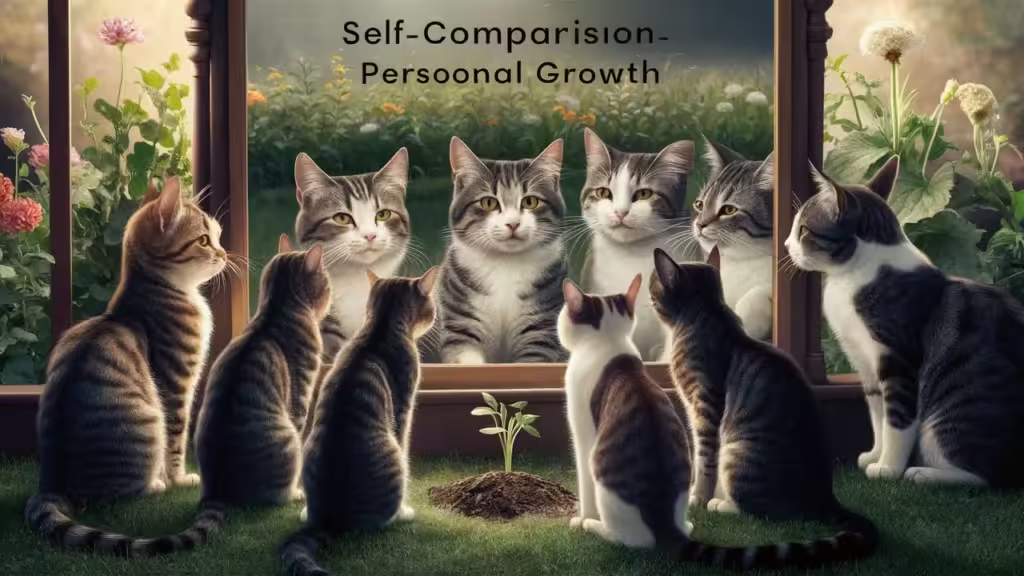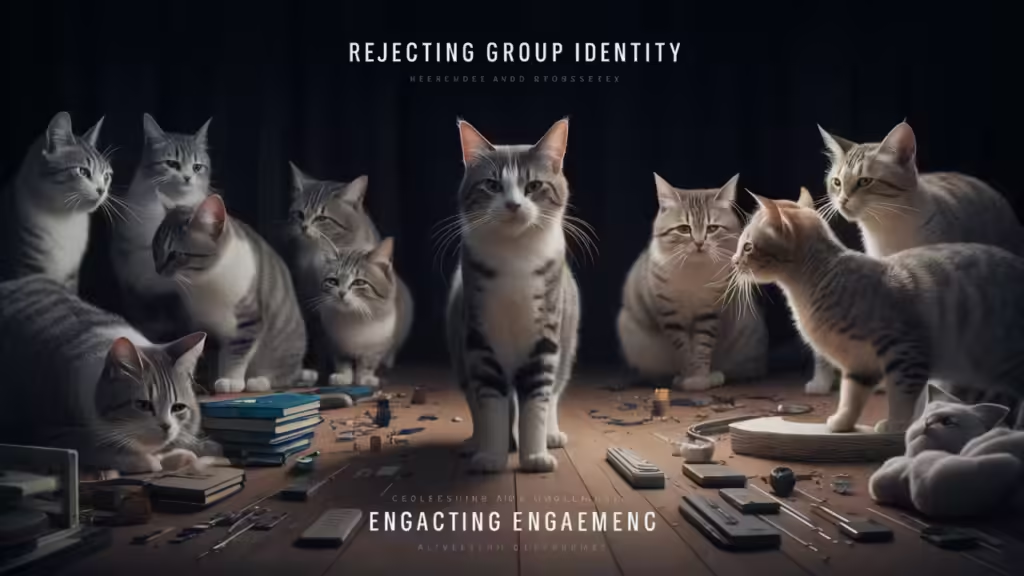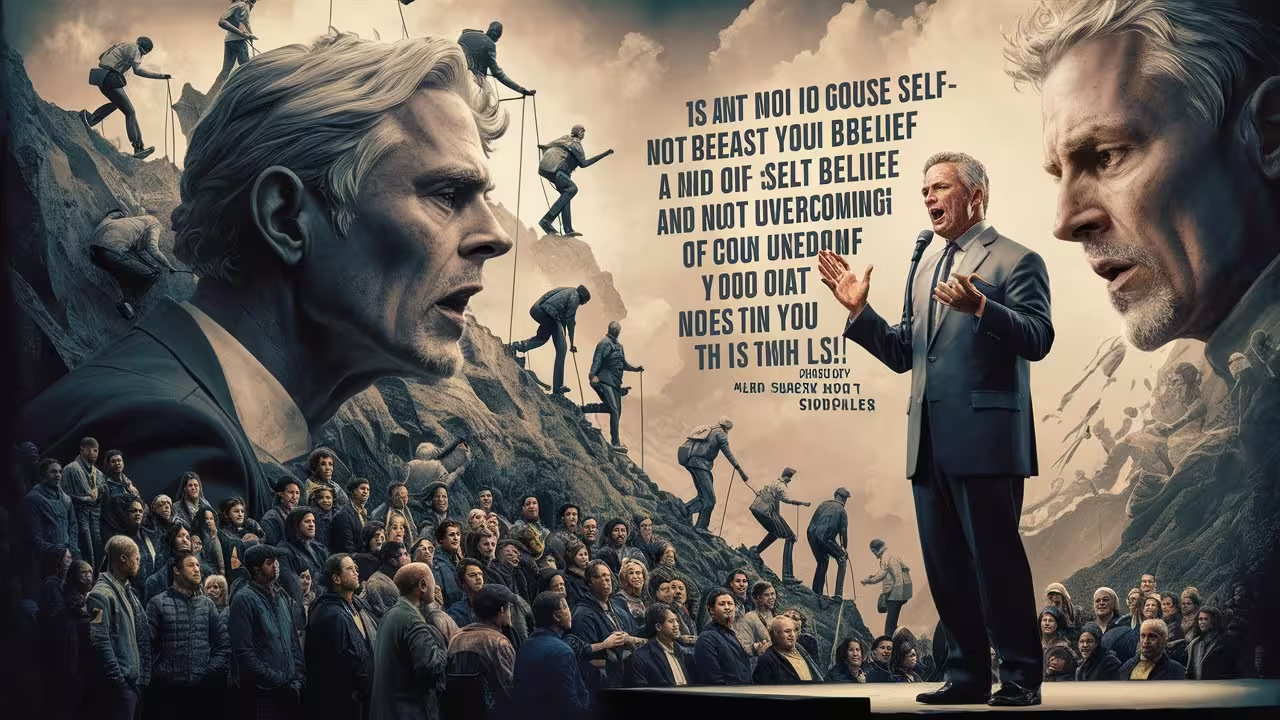Table of Contents
ToggleI. Introduction:
Alright, let’s dive in. Imagine this: life throws curveballs, right? We all face suffering at some point, and it’s not always easy. But here’s the thing, amidst all that chaos, there’s this quest for meaning. That’s what we’re going to explore here.
So, picture this individual we’re talking about. They’ve been through the wringer, to say the least. They’ve faced personal struggles, family crises, and societal pressures that would make anyone’s head spin. But through it all, they’ve found this nugget of wisdom, this idea that meaning isn’t just about being happy all the time. It’s about finding something deeper, something that gives you purpose, even when life gets rough. That’s what we’re going to unpack here.
II. The Reality of Suffering:

Alright, let’s get real for a moment. Suffering—it’s a part of life. We can’t escape it, no matter how hard we try. Our interviewee knows this all too well. They’ve been through some tough times, let me tell you. Think about it: watching a loved one teetering on the edge of life, dealing with their health crisis, and then getting hit with a serious illness themselves. It’s like a never-ending rollercoaster of hardship.
But here’s the thing, it’s not just about their struggles. It’s about the broader picture, too. Society can be a tough crowd sometimes, can’t it? Our interviewee knows what it’s like to feel the weight of social pressure bearing down on them, trying to derail their efforts at every turn.
But despite it all, they’ve held on. They’ve faced the darkness head-on, staring it down with courage and determination. And you know what? That’s something we can all learn from. Because when life gets tough, and it will, we’ve got to find that inner strength to keep going. That’s the reality of suffering, my friend, and it’s up to us to rise above it.
III. Responding to Adversity:

Now, let’s talk about how we respond when life throws us a curveball. Our interviewee has been through the wringer, no doubt about it. But here’s the kicker: they didn’t let it beat them down. Nope, not for a second.
Instead, they found this inner reservoir of strength, this unshakeable resolve to keep pushing forward. And that’s the key, isn’t it? In the face of adversity, you’ve got to dig deep and find that courage to keep going.
But it’s not just about gritting your teeth and toughing it out. No, it’s about something more profound. It’s about having faith—faith in yourself, faith in something greater than yourself, whatever that may be. Because when the going gets tough, that faith can be your guiding light, your North Star in the darkness.
So, take a page from our interviewee’s book. When life knocks you down, dust yourself off, take a deep breath, and keep marching forward. Because as they’ve shown us, even in the darkest of times, there’s always a glimmer of hope, a spark of resilience that can light the way to a better tomorrow.
IV. Meaning and Responsibility:

Let’s delve into something deep now: meaning and responsibility. Our interviewee has a unique perspective on this, born out of their own experiences. See, they’ve come to understand that meaning isn’t just about chasing fleeting pleasures or happiness. It’s about something much more substantial.
It’s about shouldering responsibility—not just for oneself, but for family, community, and beyond. Think about it: when you have something or someone to care for, when you have a role to play in the greater tapestry of life, that’s where real meaning comes from.
Our interviewee gets it. They’ve seen firsthand how bearing responsibility can infuse life with purpose, even in the darkest of times. It’s like they’ve discovered this secret formula for finding meaning amidst the chaos—a formula that revolves around taking ownership of your life and the lives of those around you.
So, here’s the takeaway: next time you find yourself searching for meaning, look beyond the surface. Look at the responsibilities you carry, the roles you play, and the impact you have on others. Because as our interviewee has shown us, that’s where true meaning lies.
V. Narcissistic Compassion and Ethical Responsibility:

What’s that, you ask? Well, it’s this idea that compassion, empathy, and care for others can sometimes be twisted into something self-serving. It’s like putting on a show of caring to boost your ego, rather than genuinely helping others.
Our interviewee sees this as a real threat—one that’s lurking in the shadows, ready to undermine our ethical responsibilities. But here’s the thing: they’re not just sounding the alarm; they’re offering a solution.
See, they believe that if we can get our act together ethically if we can prioritize genuine compassion and empathy over self-interest, then maybe, just maybe, we can steer clear of disaster.
But it’s not just about avoiding catastrophe; it’s about envisioning a future where artificial intelligence isn’t our tyrannical overlord. Yeah, you heard that right. Our interviewee isn’t afraid to tackle the big questions, like the ethical implications of AI and its potential impact on humanity.
So, here’s the bottom line: if we want to avoid a future where narcissistic compassion reigns supreme and AI calls the shots, we’ve got to step up to the plate. We’ve got to prioritize ethics, empathy, and genuine care for others. Because as our interviewee reminds us, the stakes couldn’t be higher.
VI. Self-Comparison and Personal Growth:

Now, let’s talk about comparison—but not the kind you might be thinking of. Our interviewee has a unique take on this whole comparison game, and it’s a game-changer, let me tell you.
Instead of measuring yourself against others, our interviewee suggests something radical: compare yourself to who you were yesterday. Yeah, you heard that right. It’s not about keeping up with the Joneses or trying to outshine your peers. It’s about focusing on your growth, and your journey.
Think about it: each day presents an opportunity to be a little better than you were yesterday. Maybe it’s learning something new, overcoming a fear, or simply showing a little more kindness to those around you. Whatever it is, it’s progress.
But here’s the kicker: it’s a game you can win. That’s right, there’s no competition here, no comparison to others. It’s just you, your journey, and the opportunity to become the best version of yourself.
So, next time you find yourself tempted to compare, remember this: the only person you need to measure up to is the person you were yesterday. And trust me, that’s a game you can win every single day.
VII. Dialogue and Political Discourse:

Alright, let’s talk politics—but don’t worry, we’re not here to start a fight. Our interviewee has some fascinating insights into the world of political discourse, and it’s worth paying attention to.
See, they’ve noticed something interesting: liberals and conservatives, they’re like two sides of the same coin. Yeah, they might seem like opposites, but in reality, they complement each other in some pretty important ways.
Take openness, for example. Liberals, they’re all about it. They thrive on new ideas, new experiences, and new ways of thinking. It’s like their lifeblood. But here’s the thing: too much openness can be a double-edged sword. Sometimes, you need a little orderliness, and a little stability to keep things from spiraling out of control.
And that’s where conservatives come in. They’re all about tradition, about sticking to what works, even if it’s not the most exciting option. They’re like the anchor, keeping us grounded when the winds of change start blowing a little too hard.
But here’s the real kicker: we need both. Yeah, you heard me right. We need the liberals pushing us forward, challenging the status quo, and we need the conservatives keeping us rooted in tradition, reminding us of where we came from.
Because at the end of the day, political discourse isn’t about winning or losing—it’s about finding common ground, about coming together to tackle the big issues facing our world. And as our interviewee reminds us, that’s a game we can all play, no matter which side of the aisle we’re on.
VIII. Rejecting Group Identity and Embracing Engagement:

Let’s shift gears and talk about something that’s been causing quite a stir lately: identity politics. Our interviewee isn’t one to mince words when it comes to this topic, and they’ve got some pretty strong opinions.
See, they believe that dividing people based on their group identities—it’s a recipe for disaster. Whether it’s race, gender, religion, or any other label, playing the identity politics game only leads to more division, more animosity, and more us-versus-them mentality.
But here’s the thing: our interviewee isn’t just about criticizing. They’re all about offering solutions. And their solution? It’s simple yet profound: reject group identity and embrace engagement.
What does that mean, exactly? Well, it means seeing people as individuals, not just as members of a particular group. It means engaging with others in a meaningful way, regardless of their background or beliefs. It means recognizing our shared humanity and finding common ground, even in the face of disagreement.
And you know what? It’s a message that’s sorely needed in today’s world. When we reject group identity and embrace engagement, we open the door to understanding, empathy, to unity. And as our interviewee reminds us, that’s a door worth opening.
IX. Conclusion:
From grappling with the reality of suffering to navigating the complexities of political discourse, our interviewee has offered invaluable perspectives on how to navigate life’s trials and tribulations with grace and purpose.
So, as we venture forth into the unknown terrain of the future, let us heed their words of wisdom. Let us embrace our responsibilities, reject divisive ideologies, and engage with the world around us in a spirit of empathy and understanding.
For in the end, it is through our collective efforts to find meaning amidst the chaos, to shoulder our burdens with courage and compassion, that we can truly prevail over adversity and build a brighter tomorrow for all.

